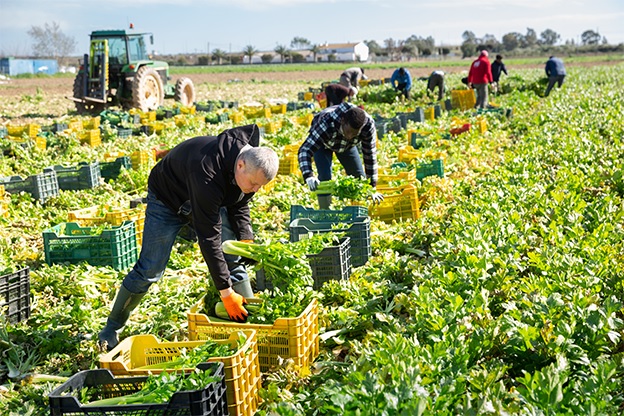
The U.S. Department of Agriculture reports our country’s agriculture exports are expected to reach $190 billion this year, while imports will come in at about $199 billion. This sets up many challenges for industry leaders who need to balance ongoing labor challenges, including an aging workforce, along with keeping teams traveling to meet demand.
Unfortunately, workforce travel prices are expected to keep rising into 2023, due to factors including steadily high rental car prices, airfare and continued labor shortages. Furthermore, lodging rates are also expected to climb this year.
Agribusiness leaders and owners must carefully plan and budget for workforce travel, especially since we’re in the midst of economic uncertainty and fears of a potential recession.
As such, it’s critical to have a well-established workforce travel budget program in place. Here are three tips for agriculture leaders to consider.
1. Update your travel policy
By building or revising your corporate travel policy, you can better manage the rising expenses associated with business travel. Corporate travel policies provide procedures and protocols for employee or contractor travel such as per diems. These policies are essential to ensuring your workers make hotel and transportation reservations within your company’s budget.
If you already have a policy in place, review it and update any of the following areas:
- Your company budgets
- Your team members needs and safety
- Food, fuel, and other trip-related expenses, such as shipping supplies needed for the work to be done
Your policy should incorporate as many aspects of travel guidelines as possible, so employees and contractors clearly comprehend the booking rules and other regulations. It should clarify expectations around:
- Business travel
- The reimbursement process for employees and contractors
- Language comprehension. It must be available in any languages primarily spoken by the company’s workforce.
2. Account for indirect costs
Although the main expenses of business travel are transportation and lodging, don’t forget about other costs such as rideshares, gasoline, meals, and parking.
The top indirect spending culprit is time. Consider the hours agriculture business travel managers spend researching travel options, accommodations, and negotiating fares while planning agribusiness travel. Plus, there’s the time travel managers spend after business trips collecting and organizing travelers’ receipts and tackling expense reports.
Forget managing manual travel-related costs and consider investing in digital tools that easily manage these types of tasks for you. They can streamline rate negotiations, traveler bookings, and reservation changes with ease.
3. Improve travelers’ safety
Don’t forget the crucial task of ensuring your employees’ safety when they travel. By investing in a travel management program, you can easily locate your travelers if an emergency happens due to an unforeseen event, such as catastrophic weather conditions.
Keep this year on track by ensuring your travel policy is up to date, you are keeping indirect costs at a minimum, and you’re enhancing the safety of your employees and contractors when they travel for you. CLC Lodging has travel management software and platforms that can do all this for you.
Recent Posts
-

Demolish the Biggest Frustrations in Construction Travel
Nov 19, 2024 | -

Thanksgiving 2024: What Restaurants are Open for the Holiday?
Nov 19, 2024 | -

Building a Travel Program for Project-Based Construction
Nov 08, 2024 |